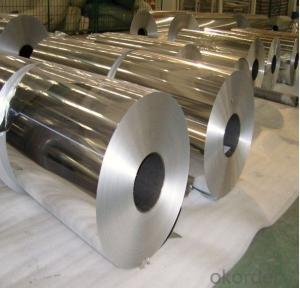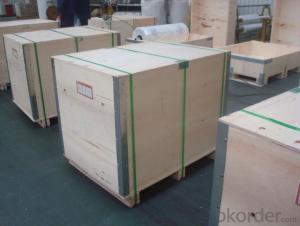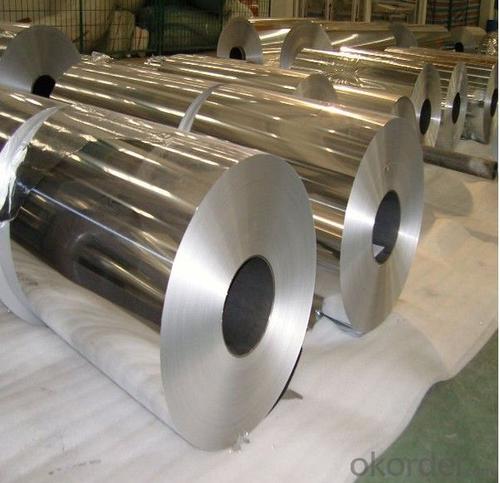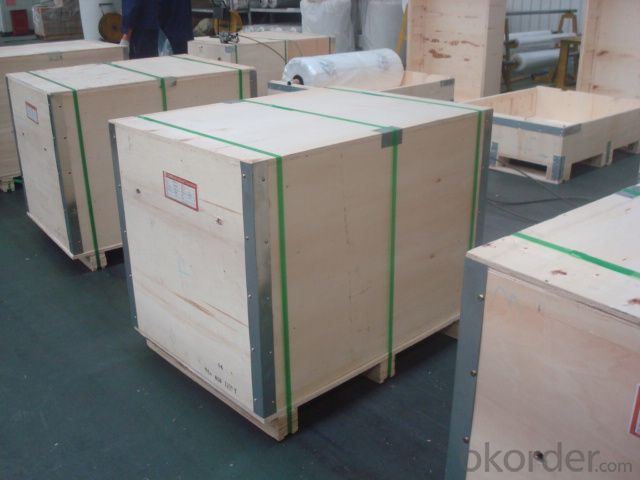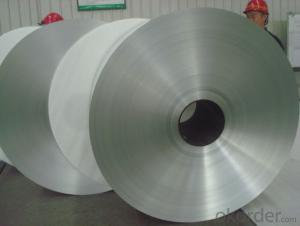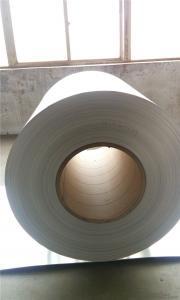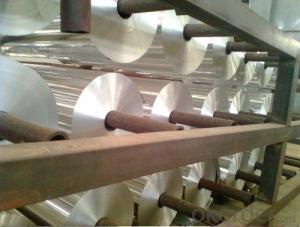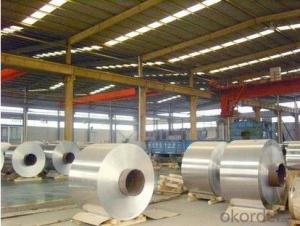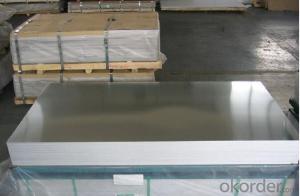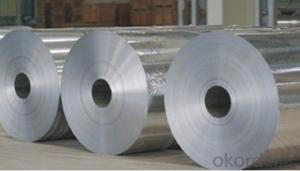Acm Aluminum Coil ASTM Grade 5754 Aluminum Strips Belt for Solar
- Loading Port:
- Shanghai
- Payment Terms:
- TT OR LC
- Min Order Qty:
- 5 m.t.
- Supply Capability:
- 500 m.t./month
OKorder Service Pledge
OKorder Financial Service
You Might Also Like
Specification
ASTM Grade 5754 Aluminum Strips Belt For Solar
aluminum coil specifications:
1) Alloy :1050, 1060,1100, 3003 3004 3105 3A21 5005 5052 etc
2) Temper: O/H12/H14/H1/H18/H32/H34/H36/H38//H111/H112/H116/H321/T6/T651/T3/T351 etc
3) Thickness: 0.1mm to 6mm
4) Width:20mm to 3300mm
5)Coil weight: 100kgs to 6 tons depends on actual requirement
6)Core material: Aluminum or paper
7)Coil Inner diameter: 75mm, 150mm, 200mm, 300mm, 405mm, 505mm or as required
8) Protective film can be added
item | 3003 Aluminum coil | |
Standard | GB/T3190-2008,GB/T3880-2006,ASTM B209,JIS H4000-2006,etc | |
Material | 1060,1050,1100 3003,3103,3004,3005,3105 5052, 5454,5754 | |
Size | Thickness | 0.5mm-3.5mm |
Width | 800-1500mm | |
Weight/Roll | About 1.5MT/3MT | |
Quality control | Mill Test Certificate is supplied with shipment, Third Part Inspection is acceptable. | |
Surface | Bright, polished, hair line, brush, checkered, embossed, etc | |
Trade terms | Price term | ,FOB, CNF, CIF, etc |
Payment Term | TT,L/C | |
MOQ | 2MT | |
20 GP Capacity | About 20-25MT | |
Delivery time | 1.The products will delivery immediately after receiving the payment. 2.According to the order quantity, prompt delivery. | |
Export to | Ireland,Singapore,Indonesia,Ukraine,Spain,Canada,USA,Brazil,Thailand,Korea,Iran,India,Egypt,Kuwait, Oman,Viet Nam, South Africa, Dubai, Russia, etc | |
Package | Stick blue film→plastic film→waterproof paper→1~2 tons on a export standard pallet(corner protection) | |
Application | 1)Further making utensil.2)Solar reflective film3)The appearance of the building4)Interior decorating:ceilings,walls,etc.5)Furniture cabinets6)Elevator decoraction7)Signs,nameplate,bags making.8)Decoration inside and outside the car9)Household appliances:refrigerators,microwave ovens,audio equipment,etc.10)The consumer electronics:mobile phones,digital cameras,MP3,etc. | |
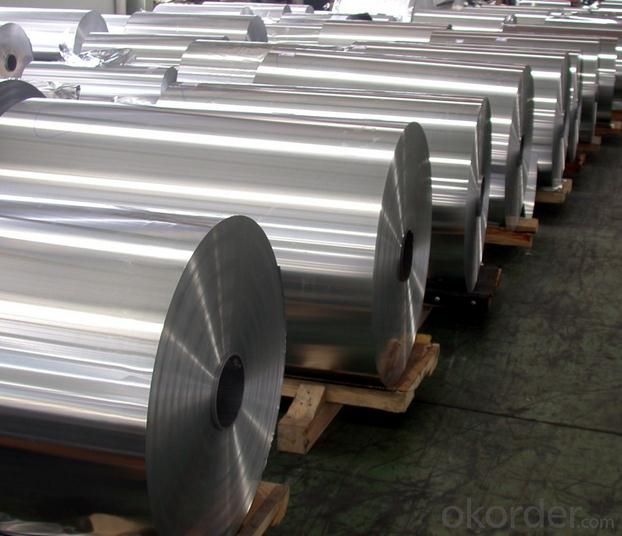
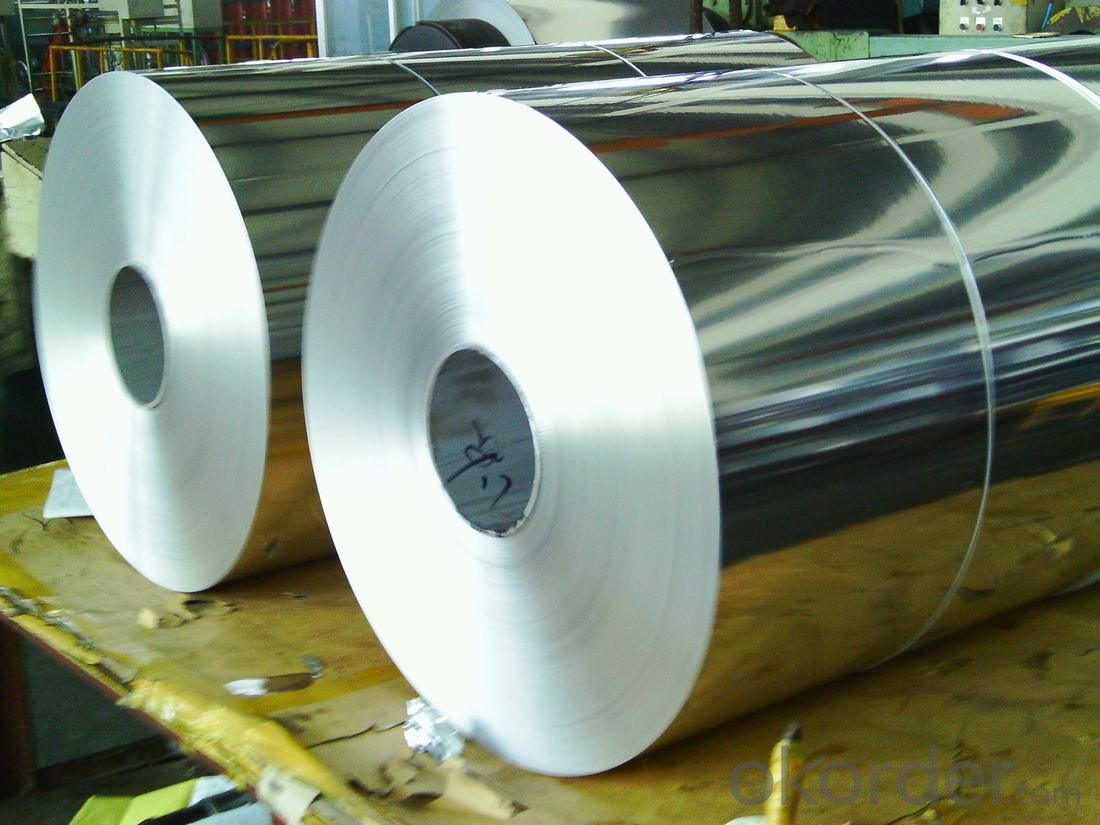
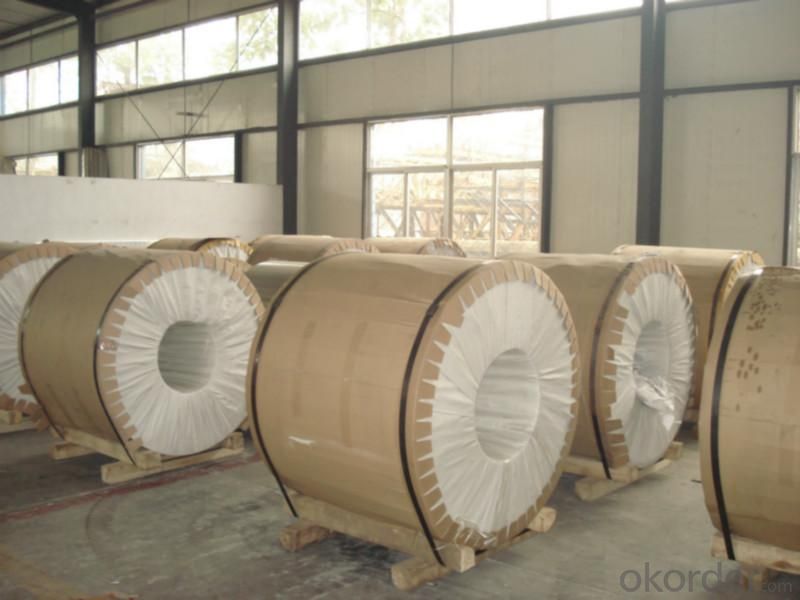
- Q: Are aluminum coils suitable for interior design applications?
- Aluminum coils are indeed a fitting choice for interior design purposes. The versatility of aluminum as a material presents a multitude of advantages for interior design endeavors. To begin with, aluminum possesses a lightweight nature, ensuring ease of handling and installation. This quality proves particularly advantageous for projects necessitating extensive installations or suspended ceilings. Moreover, aluminum coils exhibit exceptional durability and corrosion resistance, guaranteeing extended lifespan and suitability for high-traffic regions. Furthermore, aluminum can be effortlessly tailored and molded to meet specific design requirements, thereby offering limitless design possibilities. Additionally, the material is available in a plethora of finishes, including brushed, polished, or anodized options, which can significantly enhance the aesthetic allure of any interior space. Furthermore, aluminum emerges as a sustainable and eco-friendly alternative, given its easy recyclability and low carbon footprint relative to other materials. All in all, aluminum coils represent a pragmatic and visually pleasing choice for interior design applications.
- Q: Can aluminum coils be used in the production of signage?
- Yes, aluminum coils can be used in the production of signage. Aluminum is a versatile and durable material that is commonly used in the signage industry due to its lightweight nature, corrosion resistance, and ability to withstand various weather conditions. Aluminum coils can be easily shaped, cut, and formed into different shapes and sizes, making it ideal for creating custom signage. Additionally, aluminum coils can be coated with different finishes, such as paint or powder coating, to enhance their appearance and provide extra protection against fading and scratching. Overall, aluminum coils are a popular choice for signage production due to their versatility, durability, and aesthetic appeal.
- Q: Can aluminum coils be used for automotive heat shields?
- Yes, aluminum coils can be used for automotive heat shields. Aluminum is a lightweight and durable material that has excellent heat resistance properties, making it suitable for use in automotive heat shields. Its ability to dissipate heat efficiently helps protect sensitive components from excessive heat, ensuring optimal performance and durability in vehicles.
- Q: Can aluminum coils be used in architectural mesh applications?
- Yes, aluminum coils can be used in architectural mesh applications. Aluminum is a lightweight and durable material that is corrosion-resistant, making it suitable for various architectural designs. The flexibility of aluminum coils allows for easy customization and installation in different mesh patterns, providing both functional and aesthetic benefits in architectural applications.
- Q: Can aluminum coils be used in solar energy systems?
- Yes, aluminum coils can be used in solar energy systems. Aluminum is a commonly used material in the construction of solar panels and solar energy systems due to its excellent properties. Aluminum coils are lightweight, durable, and have excellent thermal conductivity, making them ideal for transferring heat away from the solar cells. Additionally, aluminum is resistant to corrosion, which is crucial for outdoor applications where solar panels are exposed to various weather conditions. The use of aluminum coils in solar energy systems helps improve the overall efficiency and lifespan of the panels, contributing to the effectiveness and sustainability of solar energy generation.
- Q: What are the environmental effects of utilizing aluminum coil?
- <p>Aluminum coil usage has several environmental impacts. While aluminum is recyclable and has a lower carbon footprint than some other metals, its production requires significant energy, leading to CO2 emissions. The mining and refining processes can also lead to habitat destruction and water pollution. However, its lightweight nature can reduce fuel consumption in transportation, mitigating some environmental effects. The recycling of aluminum saves energy and reduces waste, making it a more sustainable choice over time.</p>
- Q: Can aluminum coils be used in solar energy systems?
- Yes, aluminum coils can be used in solar energy systems. Aluminum is a commonly used material in the construction of solar panels and other components due to its lightweight, corrosion resistance, and excellent thermal conductivity properties. It is often used as a conductor in the wiring of solar panels and can also be found in heat exchangers and solar water heaters.
- Q: This question asks for a method to calculate the diameter of an aluminum coil using its weight and density.
- <p>To calculate the diameter of an aluminum coil based on its weight and density, you first need to know the volume of the coil. The formula for volume (V) is V = mass (m) / density (蟻). Once you have the volume, you can use the formula for the volume of a cylinder, V = 蟺r虏h, where r is the radius and h is the height (or length) of the coil. If you know the height of the coil, you can solve for the radius and then double it to find the diameter (D = 2r). Ensure you have consistent units for all measurements. This calculation assumes the coil is cylindrical and uniform in thickness.</p>
- Q: What are the weight and thickness options for aluminum coils?
- The weight and thickness options for aluminum coils can vary depending on the specific needs and requirements of the project or application. Generally, aluminum coils can range in weight from a few hundred pounds to several thousand pounds, while the thickness can range from a few millimeters to a few inches. It is important to consult with a supplier or manufacturer to determine the appropriate weight and thickness options based on the intended use of the aluminum coils.
- Q: And if the deodorant companies know that aluminum causes cancer, why do they keep putting it in their products?
- Aluminium-based complexes react with the electrolytes in the sweat to form a gel plug in the duct of the sweat gland. The plugs prevent the gland from excreting liquid and are removed over time by the natural sloughing of the skin. The metal salts work in another way to prevent sweat from reaching the surface of the skin: the aluminum salts interact with the keratin fibrils in the sweat ducts and form a physical plug that prevents sweat from reaching the skin’s surface. Aluminum salts also have a slight astringent effect on the pores; causing them to contract, further preventing sweat from reaching the surface of the skin.The blockage of a large number of sweat glands reduces the amount of sweat produced in the underarms,
Send your message to us
Acm Aluminum Coil ASTM Grade 5754 Aluminum Strips Belt for Solar
- Loading Port:
- Shanghai
- Payment Terms:
- TT OR LC
- Min Order Qty:
- 5 m.t.
- Supply Capability:
- 500 m.t./month
OKorder Service Pledge
OKorder Financial Service
Similar products
Hot products
Hot Searches
Related keywords
